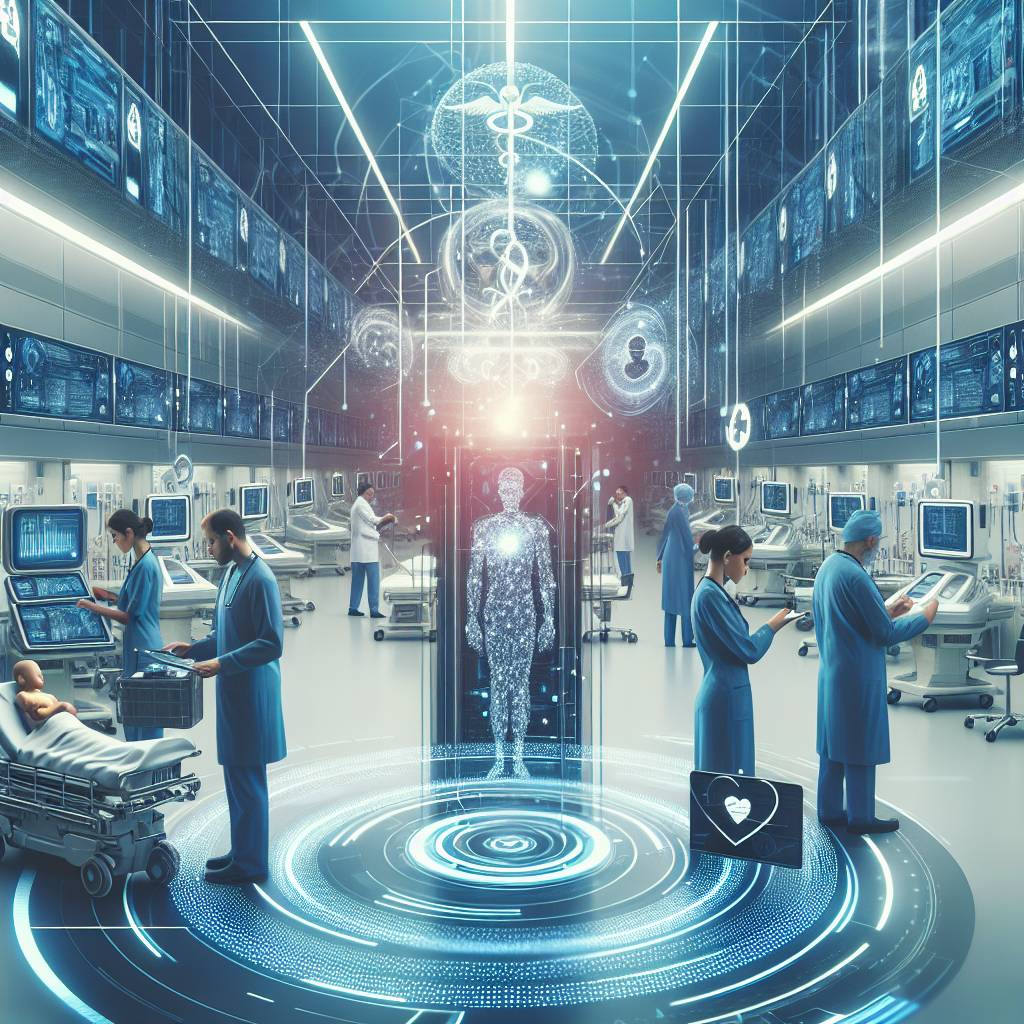In recent years, the healthcare industry has seen a significant shift towards the adoption of artificial intelligence (AI) technologies. These technologies have the potential to revolutionize government health services by improving the quality of care, reducing costs, and increasing efficiency. From diagnosis and treatment to administrative tasks, AI is being integrated into various aspects of healthcare to help healthcare providers deliver better outcomes for patients. In this article, we will explore the impact of AI on government health services and how it is transforming the way healthcare is delivered.
AI in Diagnosis and Treatment
One of the most significant areas where AI is making a difference in government health services is in the field of diagnosis and treatment. AI algorithms are being used to analyze medical images, such as X-rays, CT scans, and MRIs, to help detect and diagnose diseases more accurately and quickly. These algorithms can identify patterns and anomalies that may be missed by human radiologists, leading to earlier detection and more effective treatment.
For example, a study published in Nature Medicine found that an AI system was able to detect breast cancer in mammograms with a sensitivity of 90%, compared to 88% for radiologists. This not only improves the accuracy of diagnosis but also reduces the chances of false positives and unnecessary biopsies.
In addition to diagnosis, AI is also being used to personalize treatment plans for patients. By analyzing patient data, such as medical history, genetic information, and lifestyle factors, AI algorithms can help healthcare providers tailor treatment plans to individual patients, leading to more effective outcomes.
AI in Administrative Tasks
Another area where AI is revolutionizing government health services is in administrative tasks. From appointment scheduling to billing and coding, AI technologies are streamlining and automating many of the time-consuming and repetitive tasks that healthcare providers face.
For example, chatbots powered by AI are being used to assist patients in scheduling appointments, answering common questions, and providing information about healthcare services. This not only improves the patient experience but also frees up administrative staff to focus on more complex tasks.
AI algorithms are also being used to improve billing and coding processes, reducing errors and ensuring that healthcare providers are reimbursed accurately and promptly. By automating these tasks, AI can help government health services save time and resources, allowing them to focus on delivering quality care to patients.
Challenges and Opportunities
While the adoption of AI in government health services offers many benefits, there are also challenges that need to be addressed. One of the main concerns is the potential for bias in AI algorithms, which can lead to disparities in healthcare outcomes. For example, if an AI system is trained on data that is not representative of the entire population, it may produce biased results that can impact patient care.
To address this issue, healthcare providers and policymakers need to ensure that AI algorithms are trained on diverse and inclusive datasets to minimize bias. Additionally, regular monitoring and auditing of AI systems are essential to identify and correct any biases that may arise.
Despite these challenges, the opportunities presented by AI in government health services are vast. By leveraging AI technologies, healthcare providers can improve patient outcomes, reduce costs, and increase efficiency. From diagnosis and treatment to administrative tasks, AI is transforming the way healthcare is delivered, leading to a more personalized and effective healthcare system.
FAQs:
Q: How is AI being used in government health services?
A: AI is being used in government health services to improve diagnosis and treatment, streamline administrative tasks, and personalize treatment plans for patients.
Q: What are the benefits of AI in healthcare?
A: The benefits of AI in healthcare include improved accuracy in diagnosis, personalized treatment plans, reduced costs, and increased efficiency.
Q: What are the challenges of using AI in healthcare?
A: Challenges of using AI in healthcare include potential bias in algorithms, data privacy concerns, and the need for regular monitoring and auditing of AI systems.
Q: How can healthcare providers ensure that AI algorithms are unbiased?
A: Healthcare providers can ensure that AI algorithms are unbiased by training them on diverse and inclusive datasets, regularly monitoring and auditing AI systems, and implementing transparency and accountability measures.
Q: What is the future of AI in government health services?
A: The future of AI in government health services is promising, with continued advancements in AI technologies expected to further improve patient outcomes, reduce costs, and increase efficiency in healthcare delivery.

